Years ago when I was a Life Master of no distinction, I did have a few connections. I had won some events because I had wangled games with two players I still revere — the great Lou Bluhm and the dynamic and indomitable Tom Sanders. So when a friend of Lou’s asked if I was available to play with an acquaintance of his — a man who would pony up a little something for a decent partner — I readily agreed. I put in two sessions and walleted a $50 bill, and my new bride was impressed. I had been paid to play bridge. I was a pro!
Many reputable professionals (Mark Lair and Fred Hamilton come to mind) offer services online. When I watched an IMP game on OKbridge, South was — his own description — an expert and a pro. But after a few deals, I had my doubts.
I liked South’s initial pass but not the four diamond bid, which gave East-West a fielder’s choice. Somebody could have doubled four diamonds for plus 500. Against four spades, South led the queen of diamonds, winning, and shifted to a trump. East could have threaded their way to 10 tricks by playing low from dummy, but they took the ace, cashed the ace of clubs, ruffed a club, ruffed a diamond and led the club queen, pitching the last diamond. South won and led another diamond, and East ruffed and led the spade 10 … which won. East led another trump and claimed the rest, making four.
Hmmm. Any pro worthy of that designation would have shifted to the king of hearts when they took the king of clubs. Failing that, they would have captured the spade 10 and shifted to the heart king, leaving declarer with a heart to lose. (At double dummy, the defense could prevail only if North overtook the first diamond and shifted to hearts.)
Next South displayed some questionable bidding judgment. Suppose you hold
With both sides vulne
rable, North deals and opens two spades. East passes. What is your call?
South lifted to three spades, which could have traded a plus for a minus. South had no reason to preempt when he had good defensive values. If West balanced and East-West got to three hearts, South could always compete with three spades. If East-West bid four hearts, South could double. This was the deal:
North produced a trump trick and a spade trick, so the result was down one. If East’s spades had been A-K-Q-10 or even A-K-Q-9, West could have made five hearts doubled. Meanwhile, a couple of Souths made six clubs doubled when West led the ace of hearts. Was North supposed to run to six clubs over South’s double?
Experts would advocate various approaches with the South hand. I’m with the late Edgar Kaplan, who used to decry actions such as South’s. South preempted with a mammoth hand and made their partner captain when they can have little idea of who can make what. Perhaps you aren’t inclined to be too hard on South on that deal. After all, they wound up plus 200.
This was the last deal I watched.
South resorted to a fourth-suit bid of two diamonds with inadequate values and found himself obliged to play three notrump. West led a heart, and South took dummy’s ace and tried a spade to his 10. The defense could prevail if West took the ace and shifted to clubs — rather unclear — but he ducked. South then led a club himself to dummy’s king.
East took the ace and could have beaten three notrump with a club return, but they returned a heart. South won and could have squeaked home by leading another spade. Instead, they cashed the ace of diamonds at the fifth trick — a strange play if I ever saw one — and wound up down one.





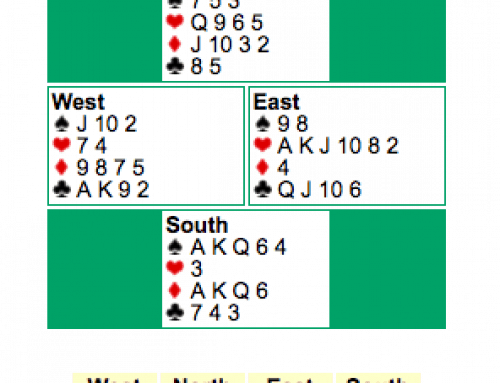
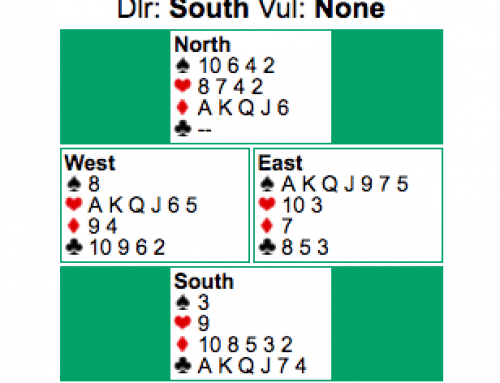
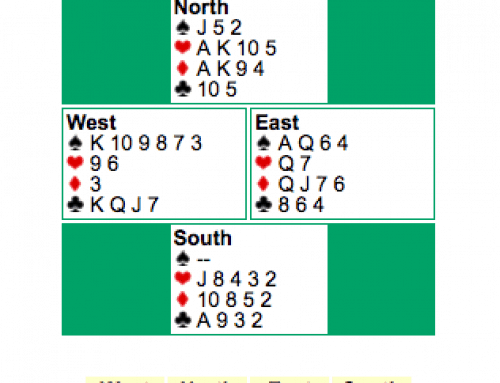
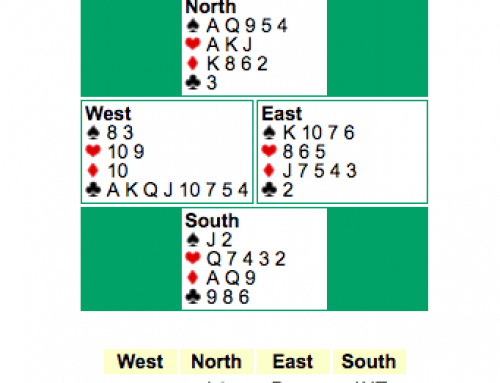
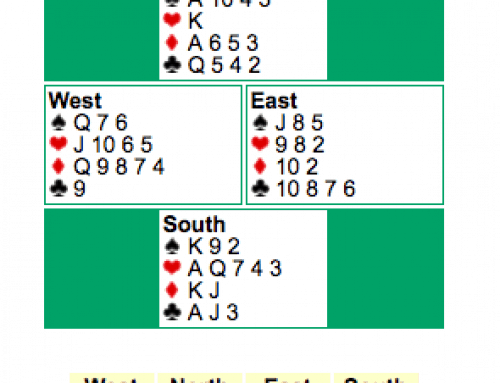
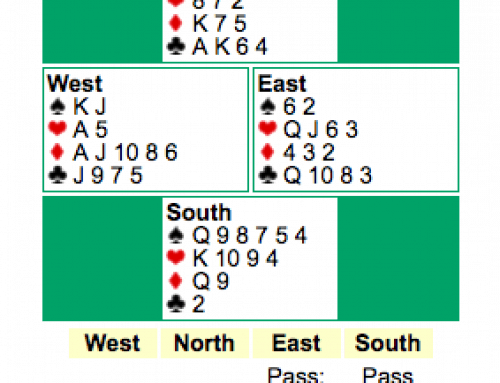
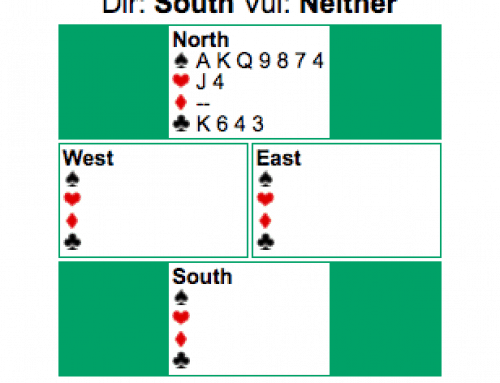
Leave A Comment